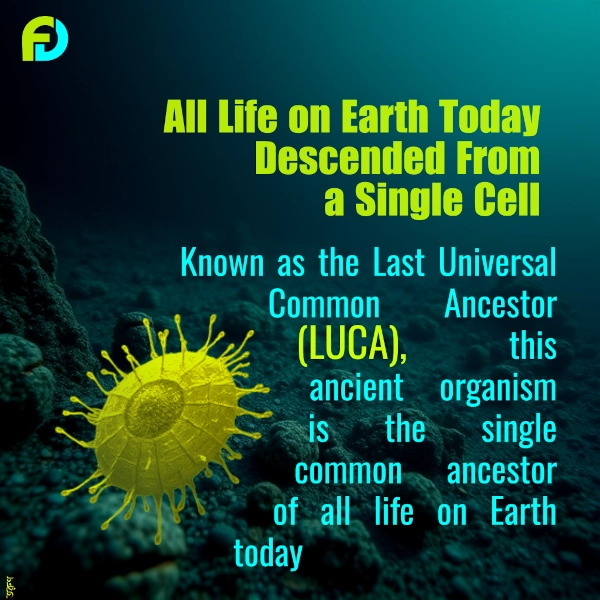
The Ancestor of Us All
LUCA, the Last Universal Common Ancestor, is a pivotal figure in the history of life on Earth. Scientists believe LUCA existed approximately 3.5 to 4 billion years ago, thriving in a world vastly different from what we know today. This single-celled organism holds the key to understanding the shared traits of all life on Earth, from bacteria to plants to humans.
LUCA’s Environment
LUCA likely lived in a hot, aquatic environment, such as hydrothermal vents on the ocean floor. These locations provided the perfect conditions for early life: abundant minerals, energy sources, and a stable habitat. This environment also supports the hypothesis that life began in the oceans before spreading across the planet.
LUCA’s Traits
Though LUCA is not a direct ancestor of any living species, its traits offer valuable insights into early life. It is believed to have:
- A rudimentary genetic code, using RNA and DNA to pass information.
- A primitive cell membrane to protect itself.
- The ability to produce energy through chemical reactions, possibly using hydrogen gas.
These traits are shared across all domains of life, underscoring LUCA’s role in our evolutionary history.
LUCA’s Legacy
LUCA’s genetic material was passed down through countless generations, evolving into the diverse forms of life we see today. Its descendants branched into three major domains: Bacteria, Archaea, and Eukaryota.
LUCA isn’t the “first” life form but represents a common link after life diversified from simpler origins. This makes LUCA a snapshot of our most ancient biological heritage.
Why LUCA Matters
Studying LUCA gives us a glimpse into the origins of life and the conditions that made life possible. This research is not only a journey into the past but also helps guide the search for life on other planets.
Fun Facts
- The genetic evidence of LUCA lies in universal biological processes, like the use of DNA and ATP for energy.
- LUCA is not a single species but a population of organisms with shared traits.
- Some scientists nickname LUCA “the mother of all life”!
Curious about the origins of life?
Discover more fascinating stories about evolution and biology in our “Beyond the Surface” section!

We choose not to clutter your experience with ads. If you’d like to support us, consider showing some love by liking this post on X (Twitter), Instagram or Facebook!
Share this Post, Spread the Knowledge!
